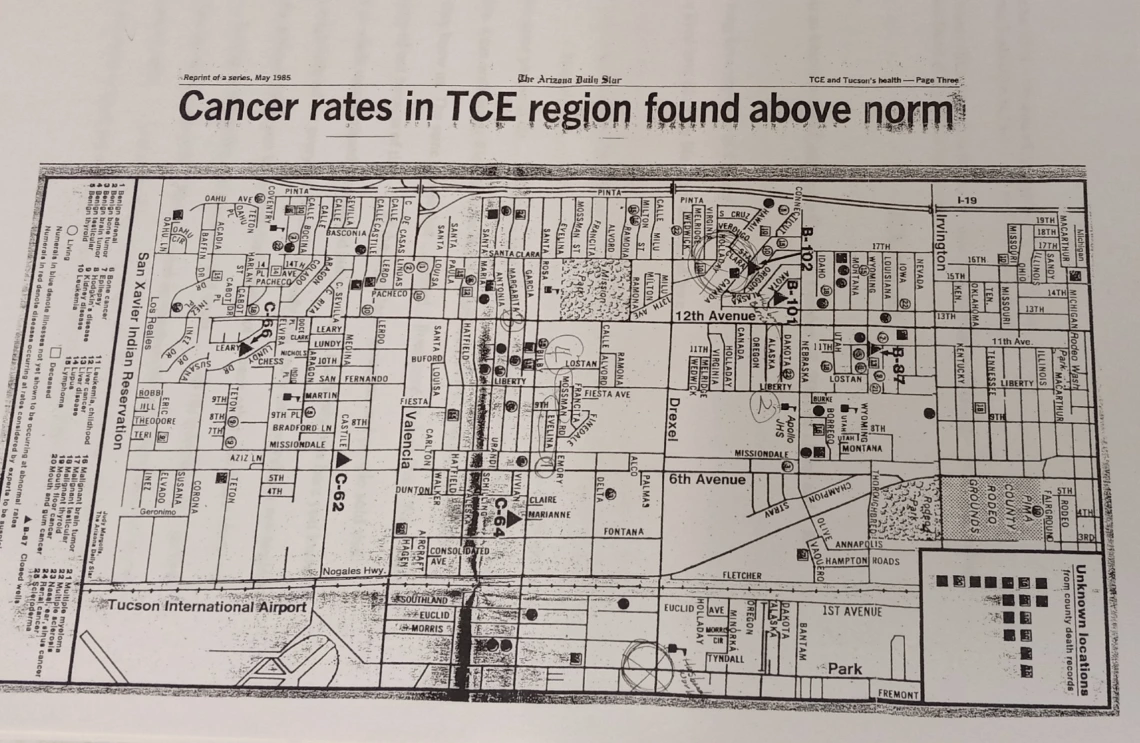Raquel Rubio-Goldsmith oral histories

Arizona Daily Star newspaper clipping illustrating the high rates of TCE within a specific area of Tucson. TCE rates were determined to be a main cause of higher cancer rates in the area.
Collection area: Borderlands
Collection dates: 1988-2010
This collection includes oral history interviews conducted by students in the MAS 485/585 course taught by Professor Raquel Rubio-Goldsmith. Interviews were conducted with Mexican American/Mexicana/Chicana women and students completed the interview, transcript, and student papers that discuss their experience as oral historians and analyzes lessons offered from interviewees. Items are arranged alphabetically by interviewee's last name. Audiovisual materials (interview tapes) are in separate folders and are restricted until access copies can be provided by Special Collections.
The MAS 485/585 Mexicana/Chicana Women's History course is a historical survey and sociological analysis of past and present experiences of Mexicanas and Chicanas in the United States and is a writing emphasis course offered at the University of Arizona through the Mexican Ameican Studies department.
Professor Raquel Rubio-Goldsmith is the Co-Director of the Binational Migration Institute at the Mexican American Studies program and focuses her historical research on the history of Mexicana/Chicana on the US-Mexico border. She is a community activist devoted to immigration rights, women's rights, and civil rights in general. Her course MAS 485/585 requires students to interview a Mexican American/Mexicana/Chicana woman/women and create an oral history. Oral histories within this collection generally include interviews, transcripts, and student papers on the project, although some files are incomplete. A few subjects offered additional information, including photographs, pamphlets, etc.
A collection guide explains what's in a collection. New to using our collections? Learn how to use a collection guide.
Collection guideThe collection has materials you can access online.
Access this collection
Visit us in person to access materials from this collection. Our materials are one-of-a-kind and require special care, so they can’t be checked out or taken home.
How to cite
Learn how to cite and use materials from Special Collections in your research.
